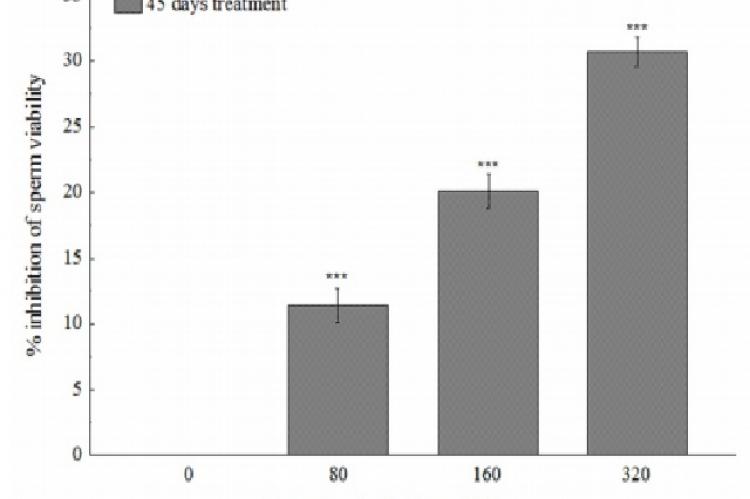Diplazium esculentum is the most commonly consumed fern throughout Asia and Oceania. Systemic toxicity and pathological effects on its consumption have already been demonstrated. But the spermicidal properties of the boiled Diplazium esculentum (BDE) have not yet been investigated. Here an attempt was made to investigate the effect of boiled Diplazium esculentum (BDE) on the viability of spermatozoa of adult Swiss albino mice, if any.3-(4,5-dimethylthiazol-2-y1)-2,5-diphenyltetrazolium bromide (MTT) reduction assay was performed for the assessment of the viability of spermatozoa of adult Swiss albino mice. Dehydrogenase, present in the mitochondria of the midpiece region of spermatozoa converts the yellow colored insoluble tetrazolium salt to purple colored water soluble formazan. This was measured spectrophotometrically using a microplate reader in the present study. Rates of MTT reduction were recorded before and after the incubation at 37°C for 1 h. The MTT reduction rate (change in optical density) for each group was determined by calculating the difference between the first and second reading of the microplate reader. Dose dependent inhibition of the viability of sperm was observed in case of all the treated animals when compared with the controls. The inhibition was statistically significant (p < 0.001) and directly proportional to the dose of the BDE. After 135 days and 180 days of treatment, at 320mg/kg body weight, the percentage inhibition of sperm viability was 40.51% and 53.12%, respectively. These results suggest that D. esculentum, even after boiling, possess spermicidal properties which may cause male infertility. Therefore, the consumption of D. esculentum is alarming and may act as an antifertility agent.
View:
- PDF (1022.06 KB)


